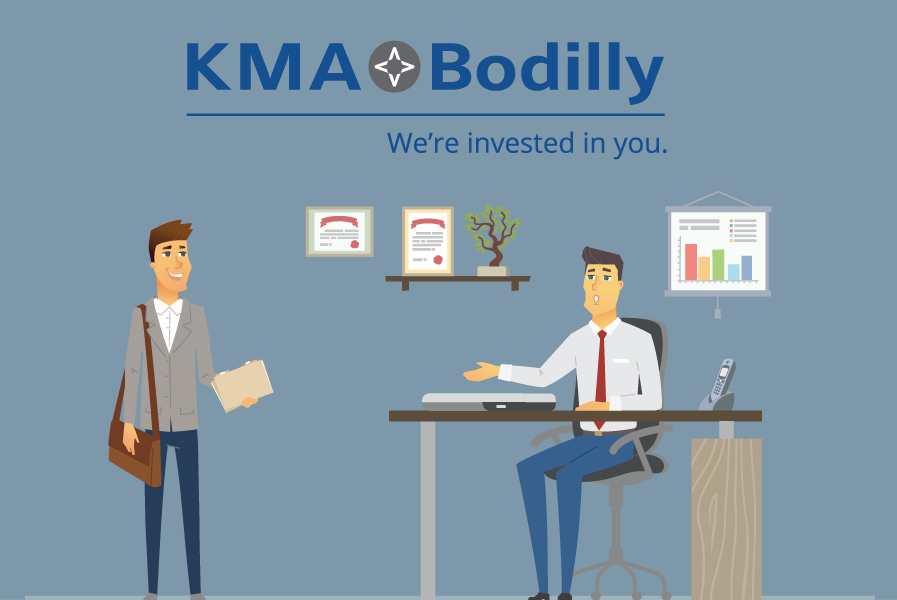What Can QuickBooks Do for You?
How Can QuickBooks Help Your Business
QuickBooks is a software program designed to help businesses and individuals keep account of expenses, sales, and daily transactions. It also allows users to invoice clients, generate accounting reports, file taxes, pay bills, and more. The program was developed with business owners in mind, as well as independent contractors. However, as an individual, you may be wondering if QuickBooks is right for you. Keep reading to learn more about how QuickBooks can benefit independent workers and sole proprietors.
Paying and Managing Bills
If keeping track of your bills and expenses is a hassle, you may want to let QuickBooks do the hard work for you. The program automatically tracks all your bills and expenses by linking to a credit card or bank account. Using your account information, QuickBooks can categorize and download records of your expenses, and if you need to make a transaction using cash or a check, you can manually input the information.
Independent contractors can also use QuickBooks to pay bills on time. By creating an Accounts Payable Report, you can keep track of any current or past due bills easily. Ensuring you get paid is no problem either. You can use the program to draft and send invoices to customers and keep track of what is owed to you (this is known as your accounts receivable balance). Use QuickBooks to generate an Accounts Receivable Aging Report to access details about current and past due invoices.
Financial Reports
Managing your professional and personal finances is no simple task, but with QuickBooks, you can greatly simplify your finances without having to deal with dozens of complicated spreadsheets. As mentioned above, the program allows you to create and view real-time financial reports and transaction information. You can use the following reports to assess the overall health of your finances:
- Statement of Cash Flows
- Profit and Loss Report
- Balance Sheet Report
Such information can be immensely helpful if you need to apply for a loan to expand your operations.
Payroll
Even though you are an independent contractor or sole proprietor, you may need to hire another freelancer or temporary worker. If you do this, you will have to run payroll at some point in time. Simple mistakes can result in major tax penalties and frustrated employees, but fortunately, you can avoid both by taking advantage of QuickBooks’ payroll function. The payroll function is automatically linked to your financial statements, so when the time to do payroll arrives, the program will already have access to your latest financial information.
The payroll feature, however, is not free, and you will need to purchase a QuickBooks payroll subscription. Fortunately, such a small investment can pay off over time, especially when you consider QuickBooks allows you to:
- Pay employees via direct deposit or with a check.
- Automatically fill payroll tax forms.
- E-pay directly from the program.
- Instantly calculate federal and state payroll taxes.
By using your payroll subscription, you can reduce or eliminate all your payday and tax headaches at once.
Taxes
Very few sole proprietors and independent contractors enjoy tax season, but luckily, QuickBooks can help lower your tax-time anxiety. Instead of relying on a shoebox full of unorganized receipts and account statements, you can use QuickBooks to handle your tax and accounting needs. QuickBooks gives you access to a real tax professional (via a user ID and password), and the program stores everything you need to file your tax returns. All your income, expenses, receipts, and statements will be accessible in one place.
Inventory Tracking
Keeping track of inventory is easy with QuickBooks. The program can automatically track and update your inventory after each transaction, and you will have the option to upload your data to an Excel spreadsheet. It also calculates the on-hand quantity, total value of your inventory, and the average cost of each unit.
Electronic Payments
Cashing checks and accepting cash payments can be tedious, but with QuickBooks, you will finally have the option to accept electronic payments. Once your account is activated, you can send invoices to clients and give them the option to “Pay Now” using a credit card or bank account. There is, however, a small charge for each electronic payment. The amount you are charged will depend on your payment entry method.
Upload and Store Receipts
As stated above, wrestling with a box of receipts during tax time can be frustrating, but luckily QuickBooks can store your receipts. All users, regardless of which subscription they choose, can use a mobile device to take a picture of their receipt and upload it to QuickBooks in just a few minutes. There is no need to look for lost receipts or attempt to match up receipts with banking transactions (Quickbooks attaches receipts to corresponding transactions). There is no limit to how many receipts you can upload and store to cloud with your other financial data. This is a great feature for anyone who uses receipts for accounting and tax purposes.
Your Choice of QuickBooks Products
Individuals will have their choice of the following products to subscribe to:
- QuickBooks Online
- QuickBooks Self-employed
- QuickBooks Mac
- QuickBooks Desktop
As an independent contractor or sole proprietor, Quickbooks Self-Employed may be right of your alley. In addition to having many of the previously mentioned features, QuickBooks Self-Employed also allows you to pay your quarterly taxes.
Contact Us
Overall, QuickBooks can make your life as a freelancer, independent contractor, or sole proprietor a lot easier, especially if you dread handling your finances alone. Contact the tax and accounting professionals at KMA to learn more about our QuickBooks hosting services today.

